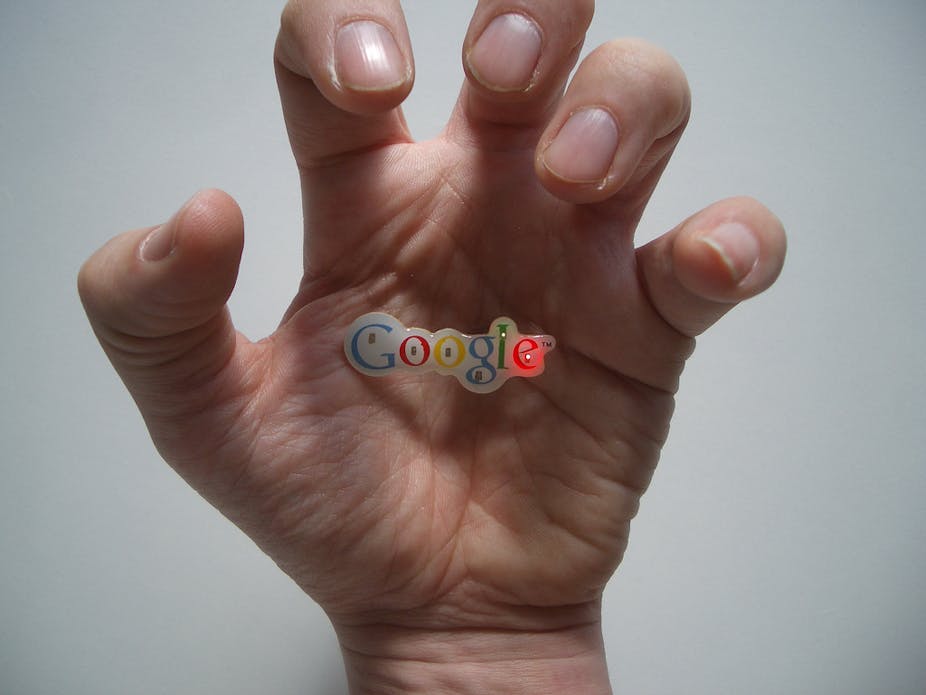It’s hard to know what to think about Google these days. Financially, the company is booming, but its reputation has suffered following the lukewarm reception for Google+, and an embarrassing outburst by an employee.
Recently, Google exceeded analysts’ expectations with its 3rd Quarter 2011 financial results.
Revenues have increased 33% over the same period last year and, for the first time, Google has reported it is on track to earn $2.5 billion for the year from mobile ad revenue.
A one-trick pony?
Nearly all of Google’s revenue is from advertising and most of what Google does is as a vehicle for that. This has led some analysts to ask whether Google is a “one-trick pony”, albeit one with a pretty lucrative trick. The problem with this, of course, is that if this is all Google can do, at some point growth is going to taper off, with nothing in the pipeline to be the “next big thing”.
It is not that Google hasn’t tried. Since February 2001 it has purchased about 100 companies. Some of these, like Android, YouTube, DoubleClick and a few others have gone on to be successful.
The great proportion of the other companies, however, have either been subsumed into Google or shut down. Slide, a social application company (responsible for the application Photovine), was purchased by Google in 2010 for $200 million and shut down this year.
And then there are the products Google launched itself, especially the predecessors of Google+, like Google Wave and Buzz, which were closed down last week. Ostensibly, killing off a large range of products is Google house-cleaning and focusing the company on fewer things: presumably those that will earn revenue.
Bradley Horowitz, Google’s Vice President of Product Management has said Google is “throwing fewer things against the wall”. He argues the company is maturing and “acting more responsibly”; more so to the shareholders, presumably, than the customers.
The rise and fall of Google+
Part of the newly-focused Google strategy is that Google+ “is a social layer built into all of its products”.
It appears, however, that even though Google executives are talking the product up, things may not be going as well as claimed.
Despite an initial frenzy of interest about Google+, the social networking site hit problems early on with its very widely publicised exclusion of a range of users in the so-called “nymwars”. These came about due to Google’s insistence its users use their real name on the site.
It didn’t help that Google’s chairman went on to explain Google’s aim was to create an online ID service where everything a user did could be linked to a clearly identified person.
This was followed by analysts’ reports that after Google+ was opened to the general public there was a spike of interest followed by an almost equal decline. And there it has sat.

CEO Larry Page has said Google+ now has 40 million users who have uploaded 3.4 billion photos. So it seems that people are using Google+ more for sharing things privately than publicly.
A complete failure?
Probably most damning for Google, however, was a 4000-word rant accidentally posted by Google employee Steve Yegge. It branded Google+ a “complete failure”.
Yegge eventually took the post down after he realised he had made it public on Google+ (a reflection in itself, perhaps, about the usability of the product).
Yegge’s criticism was mainly focused on Google’s lack of vision. He wrote, “Google+ is a knee-jerk reaction, a study in short-term thinking”. He compared Google’s approach to products to Amazon’s, where he previously worked, and to the approach Facebook had taken with its platform. There was nothing compellingly new in Google+, he argued, to make people leave Facebook and use Google+ instead.
Indeed, Facebook did not stand still. It has introduced new features to not only match features (like Circles) that Google+ introduced, but also to move the product forward with their new Timeline feature.
Steve Yegge still has his job at Google according to company founder Sergey Brin. But it is clear the honchos at Google were not pleased with the declaration, and Yegge’s options at the company will be limited. Everybody in a company may appreciate that the emperor is not wearing any clothes; they just don’t want anyone to say it in public.
Anything you can do, I can do not quite so well…
The trouble companies face when they are not innovating but simply trying to copy or match their competitors is that it is very hard to do it well and succeed. In each market there is a dominant player and then there are the “wannabes”.
Google has not succeeded in matching Amazon in its control of the electronic book market. It is unlikely to displace Facebook or Twitter in the social network space. The New York Times has reported Google is planning to launch a music store aimed at competing with Apple and Amazon. To do this, it needs to strike deals with the music companies to license their music, and so far they have shown a reluctance to do so.
The [launch of the new version](http://www.engadget.com/2011/10/18/samsung-and-googles-ice-cream-sandwich-event-liveblog/] of Android Version 4.0 (codenamed Ice Cream Sandwich) and the Samsung Google Nexus, a phone positioned to rival the Apple iPhone 4S, has passed by largely unnoticed. The events don’t generate the same level of excitement as an iPhone announcement and mainly appeal to a technical audience.
It is not likely that Google is going to disappear any time soon. Their dominance in search and online advertising will continue to bring in staggering revenues.
But if you are looking for a company that will change the world, it will probably not be Google.

